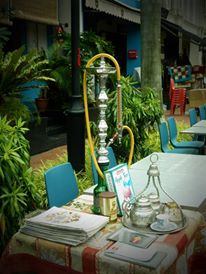Secret Photogenic Spots in Kyoto
Me and my boyfriend got to try Kimono experience the other day - what is Kimono experience? Basically you rent a kimono from a shop which shop keepers help you choosing the Kimono and some other items like bag, sandals and so on, and also help you to do fancy hairstyle or even makeup! And you can stroll around Kyoto and take photos here and there.
Our question was "where are the good spots to go without massive crowd?" - we don't like busy places like Fushimi-inari, Arashiyama, Kiyomizu-temple or Yasaka shrine...
We did some research on photogenic places with not much tourist and we found some places, and wanted to share them with you if you like off-the-beaten-path or wanna avoid crowds.
First spot we went was Sanjo bridge after we got off Keihan train - wait, it's usually very touristic and busy right? but it's WINTER. Pretty relaxed.
And we kept walking towards east, to Shirakawa river.
From Shirakawa river around Chion-in temple was so beautiful and once again, no people. We found some random old buildings with white wall, or nice bench along the river.
And we walked towards Tatsumi bridge, one of the most famous wedding photo locations in Kyoto as we knew all the places would be empty. It was nice and again not many people, but we also wanted to go some other deep places...
Ajiki-roji
Ajiki Roji is an alley of Kyoto machiya in Higashiyama that date back at least 100 years to the Taisho Period. After a long period of vacancy, in 2004 the landlady decided to rent out the machiya as homes to young (up to 35 years in age) struggling artisans (everyone must be of different trades); once the tenants become successful in their trade, they move out and yet other young aspiring artisans have their turn. The roji is now quite well-known and the weekends when most of the shops are open are full of visitors as well as locals who come to purchase the unique goods and services offered as well as bask in the almost surreal environment where one may feel transported back in time.
Shimabara area
Shimabara, located to the west of Nishi-Honganji Temple along Hanayacho Street in Kyoto, is a former licensed courtesan and later geisha area of the city. Shimabara prospered as red-light district until 1958 when prostitution was made illegal in Japan and the geisha quarter survived until the 1970s. Shimabara was one of the three main licensed prostitution quarters established by the Tokugawa regime to control the practice.
Those are our secret spots for photo shoot with less tourists, but it was so much easier to find good places especially in winter when tourism is at low season, but we wanted to take photos with fresh green and warm weather (oh my, it was so cold), so hopefully next time in like May!
Of course we can give you some recommendations if you want to try Kimono! Ask at the reception at J-Hoppers Kyoto ;)
Happy new year everyone!
Our question was "where are the good spots to go without massive crowd?" - we don't like busy places like Fushimi-inari, Arashiyama, Kiyomizu-temple or Yasaka shrine...
We did some research on photogenic places with not much tourist and we found some places, and wanted to share them with you if you like off-the-beaten-path or wanna avoid crowds.
First spot we went was Sanjo bridge after we got off Keihan train - wait, it's usually very touristic and busy right? but it's WINTER. Pretty relaxed.
And we kept walking towards east, to Shirakawa river.
From Shirakawa river around Chion-in temple was so beautiful and once again, no people. We found some random old buildings with white wall, or nice bench along the river.
And we walked towards Tatsumi bridge, one of the most famous wedding photo locations in Kyoto as we knew all the places would be empty. It was nice and again not many people, but we also wanted to go some other deep places...
Ajiki-roji
Ajiki Roji is an alley of Kyoto machiya in Higashiyama that date back at least 100 years to the Taisho Period. After a long period of vacancy, in 2004 the landlady decided to rent out the machiya as homes to young (up to 35 years in age) struggling artisans (everyone must be of different trades); once the tenants become successful in their trade, they move out and yet other young aspiring artisans have their turn. The roji is now quite well-known and the weekends when most of the shops are open are full of visitors as well as locals who come to purchase the unique goods and services offered as well as bask in the almost surreal environment where one may feel transported back in time.
Shimabara area
Shimabara, located to the west of Nishi-Honganji Temple along Hanayacho Street in Kyoto, is a former licensed courtesan and later geisha area of the city. Shimabara prospered as red-light district until 1958 when prostitution was made illegal in Japan and the geisha quarter survived until the 1970s. Shimabara was one of the three main licensed prostitution quarters established by the Tokugawa regime to control the practice.
Those are our secret spots for photo shoot with less tourists, but it was so much easier to find good places especially in winter when tourism is at low season, but we wanted to take photos with fresh green and warm weather (oh my, it was so cold), so hopefully next time in like May!
Of course we can give you some recommendations if you want to try Kimono! Ask at the reception at J-Hoppers Kyoto ;)
Happy new year everyone!






Comments